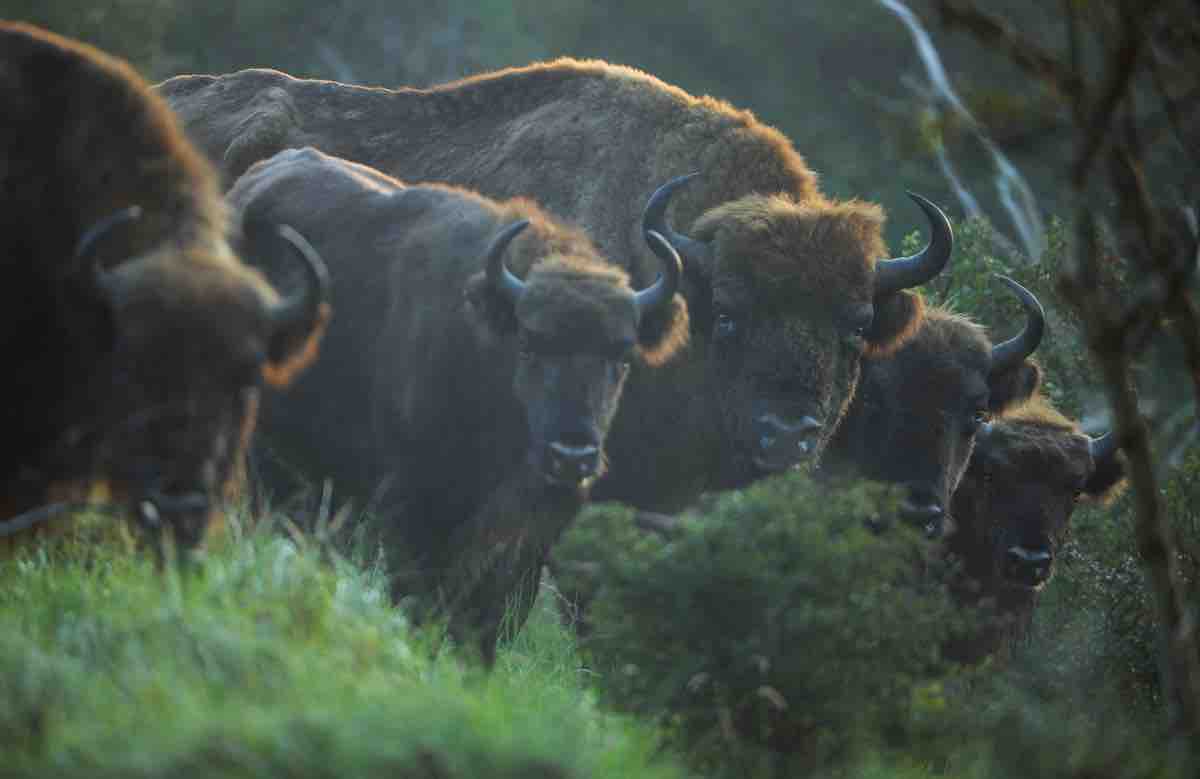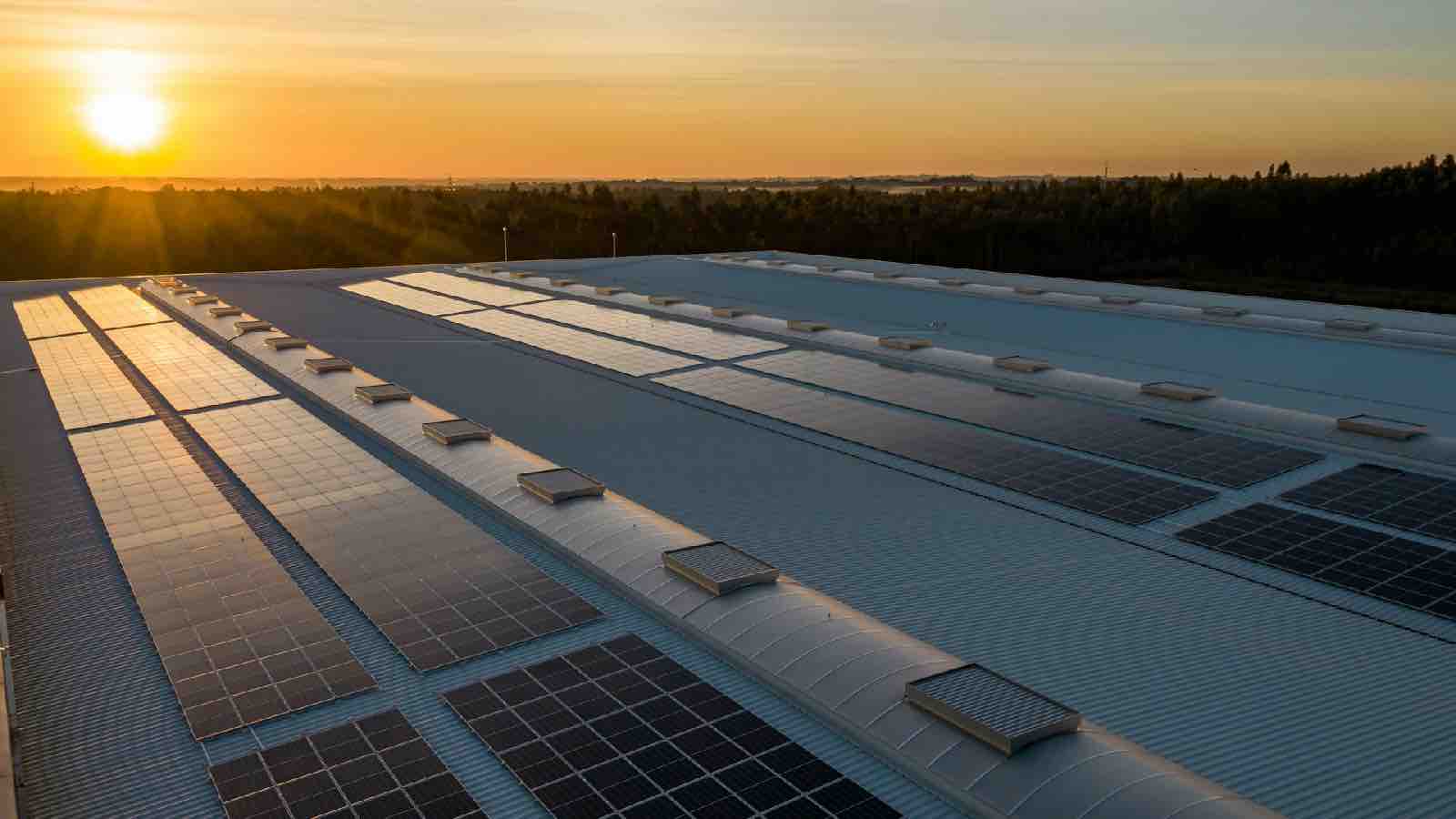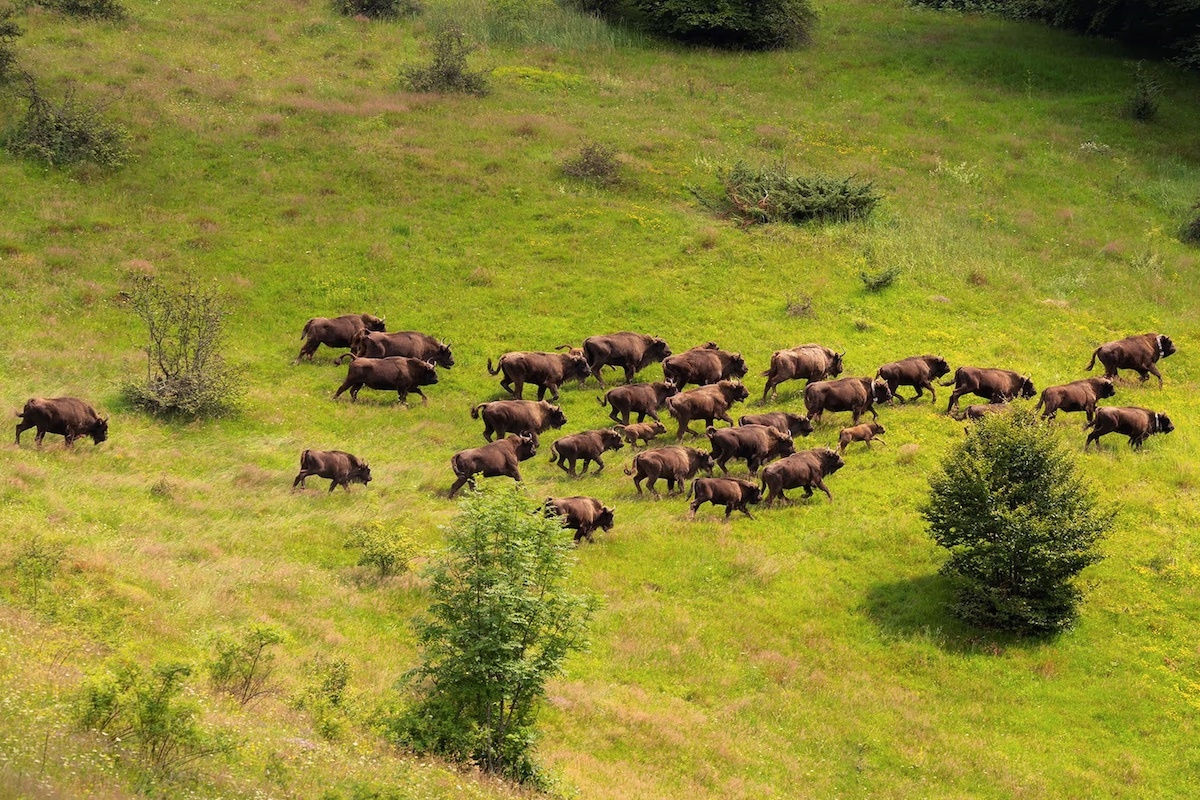Axios National Park, Greece
Romanian Bison & Carbon Sequestration

Bison (Bos Bonasus), Kennemerduinen National Park, Kraansvlak, The Netherlands. Enclousure in a fenced reserve, 250 hectar, in Kennemerduinen National Park. STAFFAN WIDSTRAND / REWILDING EUROPE
Bison restoration stories we have linked to are mostly in North America. But the Carpathian mountains have demonstrated Romania’s outsized efforts at rewilding. Now the largest such effort in Europe, according to Rewilding Europe, is this:
The goal of the Tarcu Mountains bison initiative is to help build a herd of at least 500 bison living in freedom by 2025 in the Southern Carpathians. This is an area spanning some 1.4 million hectares of wild mountains and valleys in the southern part of the Carpathian mountain chain.
Thanks to Yale e360 for more on this news from Romania.
How a Small Herd of Romanian Bison Is Locking Away Thousands of Tons of Carbon
Gone from Romania for 200 years, European bison were reintroduced to the Țarcu Mountains, at the southern end of the Carpathian range, in 2014. Now numbering 170, the bison are reshaping the mountain landscape in ways that are helping clean up emissions. Continue reading
Bird of the Day: Wilson’s Warbler
Slowed Growth Of Fossil Fuel
 For those who might say too little too late we say this still counts as good news worth reading, so thanks to Yale Climate Connections:
For those who might say too little too late we say this still counts as good news worth reading, so thanks to Yale Climate Connections:
‘Turning point in energy history’ as solar, wind start pushing fossil fuels off the grid
Fossil fuel growth has stalled while wind and solar are growing.
Solar and wind energy grew quickly enough in 2023 to push renewables up to 30% of global electricity supply and begin pushing fossil fuels off the power grid, the Ember climate consultancy concludes in a report released May 8. Continue reading
Bird of the Day: Tropical Parula
Ever Green & Restoration Of Abundance
 We missed Ever Green when it was published last year, but it came to our attention through this essay by one of its co-authors in the current issue of The Atlantic. The essay is about a path to the restoration of hope:
We missed Ever Green when it was published last year, but it came to our attention through this essay by one of its co-authors in the current issue of The Atlantic. The essay is about a path to the restoration of hope:
Protecting species from extinction is not nearly enough.
When Otis Parrish was a kid in the 1940s, abalone were abundant. Each abalone grows in a single, beautiful opalescent shell, which can get as big as a dinner plate. Parrish’s father showed him how to pry the abalone off the rocky shoreline at low tide with an oak stick or the end of a sharpened leaf spring. Continue reading
Bird of the Day: Crested Lark

Fledgling – Leander Khil Photography
Austria
Sounds Right
 You will have to sleuth for background information, because the website does not provide any; it just says in boldface and a few lines of detail what the initiative is trying to do:
You will have to sleuth for background information, because the website does not provide any; it just says in boldface and a few lines of detail what the initiative is trying to do:
Sounds Right is a music initiative to recognise the value of NATURE and inspire millions of fans to take environmental action. For the first time, NATURE can generate royalties from its own sounds to support its own conservation. Continue reading
Bird of the Day: Eurasian Nuthatch
Magrathea Metals & Seawater Bounty

A system for testing technology to draw minerals from seawater at the Pacific Northwest National Laboratory in Sequim, Washington. PACIFIC NORTHWEST NATIONAL LABORATORY
Thanks as always to Jim Robbins and Yale e360:
In Seawater, Researchers See an Untapped Bounty of Critical Metals
Researchers and companies are aiming to draw key minerals, including lithium and magnesium, from ocean water, desalination plant residue, and industrial waste brine. They say their processes will use less land and produce less pollution than mining, but major hurdles remain.
Can metals that naturally occur in seawater be mined, and can they be mined sustainably? Continue reading
Bird of the Day: Pale-billed Flowerpecker
Paul Watson, Inspiring Parley In 2024
Visit the website of Parley to learn more. We knew Paul Watson‘s reach was far and wide, so no surprise that talent like this has followed his lead:
Everything starts with inspiration. In pirate lore, a parley is a conference or discussion, especially between opposing sides as a negotiation for terms of a truce. The root of the word parley is parler, French for “to speak” or “to talk.” Parley was founded to create a space where seemingly disparate parties can talk, think and act together to negotiate peace between humankind and the life-giving ecosystem that connects us all: the oceans.
Before growing a global network, we launched with a series of Parley Talks. Each session is a curated gathering with a dedicated topic. The talks are meant to give an overview of the state of the oceans, present a specific cause and garner support for a related initiative, and inspire actual change — be it at home, on a campus, in the workplace, across an industry or around the world.
Bird of the Day: Keel-billed Toucan
Costa Rica
Amphibious Soul, Reviewed
Thanks to National Public Radio’s Barbara King for this review:
The film My Octopus Teacher tells the story of a man who goes diving every day into the underwater South African kelp forest and forms a close relationship there with an octopus. That man — the diver, and also the filmmaker — was Craig Foster, who delighted millions of nature lovers around the world and took home the 2021 Academy Award for Best Documentary Feature. Continue reading
Bird of the Day: Rufous-necked Hornbill
Hammerheads Back In The Caribbean

Scalloped hammerhead sharks are critically endangered. But the discovery of a schooling population in the Caribbean is giving local researchers hope. Blickwinkel/Alamy Stock Photo
Thanks to David Shiffman writing in Hakai Magazine:
In the Caribbean, Hammerhead Sharks Return to School
The detection of schooling behavior is a promising sign of recovery for this iconic and endangered animal.
Hammerhead sharks—fish with pronounced oblong heads and bodies as long as small cars—are unmistakable. Continue reading
Bird of the Day: California Towhee
Price Adjustments & Carbon Emmissions
The Economist shares this news:
Carbon emissions are dropping—fast—in Europe
Thanks to a price mechanism that actually works
“Our most pressing challenge is keeping our planet healthy,” declared Ursula von der Leyen on the day she was elected president of the European Commission in July 2019. Continue reading
Bird of the Day: Plain-bellied Emerald
Iles de Salut, French Guyana
If You Eat Beef, Track Its Origins
Reducing meat in our diet was easier living in India, and we committed specifically to cutting beef consumption. This effort has been assisted by awareness of this issue. Thanks to Yale e360 for bringing the work of this team to our attention:
Marcel Gomes (center) with colleagues at Repórter Brasil’s offices in São Paulo. GOLDMAN ENVIRONMENTAL PRIZE
Tracking Illicit Brazilian Beef from the Amazon to Your Burger
Journalist Marcel Gomes has traced beef in supermarkets and fast food restaurants in the U.S. and Europe to Brazilian ranches on illegally cleared land. In an e360 interview, he talks about the challenges of documenting the supply chains and getting companies to clean them up.
Investigative journalism can be a very deep dive. By the end of his probe into the supply chain of JBS, the world’s largest meat processing and packing company, Marcel Gomes reckons he and his team at the São Paulo-based nonprofit Repórter Brasil knew more about the origins of the beef it supplies from the Amazon to the world’s hamburger chains and supermarkets than the company itself. Continue reading














